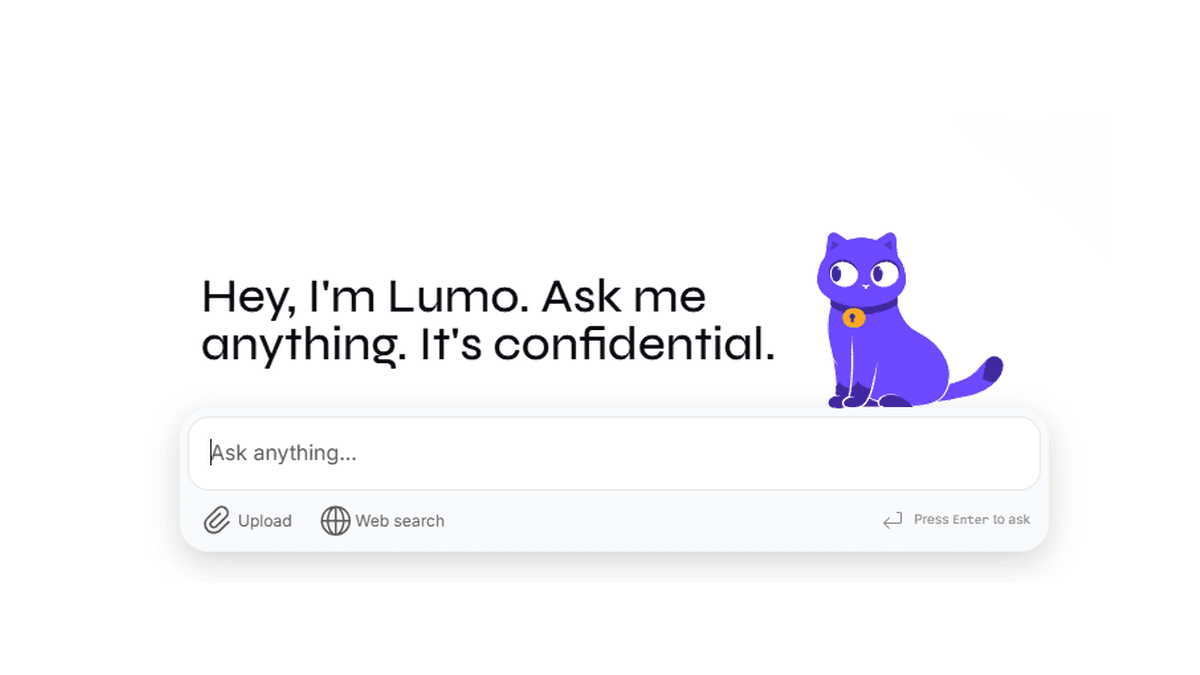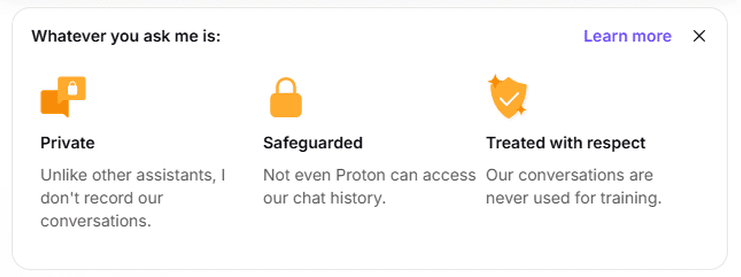- Published on
Did Proton’s Lumo Declares War on Surveillance Capitalism?
- Authors

- Name
- JumanJi 🌿
- @heyjumanji

Introduction
Hey, just a quick disclaimer: This post is based on my first impressions of Proton's Lumo AI chatbot. I've used the app briefly, and the screenshots come directly from the official Proton Lumo website. Keep in mind that Lumo might update its pricing and features in the future, so things could change as the app evolves!
Okay, so here’s the deal:
Generative AI is everywhere, but with all that innovation comes a pretty big downside—privacy. Big Tech has built a business on collecting, storing, and using our data, and that’s a little... unsettling, right? Enter Proton. If you’ve been following the privacy movement, you know Proton has always been about protecting our digital lives. Their latest move? Lumo—an AI chatbot that flips the script on how things are usually done.
Released on July 23, 2025, Lumo is all about privacy first. It doesn’t rely on harvesting your data to improve; it actually refuses to even look at your conversations. I’m really curious to see how Lumo stacks up against the usual suspects like ChatGPT and Google Gemini, but one thing’s for sure: Proton is taking a stand in the battle against surveillance capitalism. Let’s dig into what makes Lumo different—and whether it’s the future of AI.
🛠️ The Architecture of Trust: What Sets Lumo Apart

Lumo isn’t just marketing hype; it’s built on a solid foundation of privacy and transparency. Here’s how Proton makes Lumo stand out:
1. Zero-Access Encryption & No-Logs Policy
At the heart of Lumo's privacy is end-to-end encryption. All conversations are encrypted on the user's device before reaching Proton's servers, with only the user holding the decryption key. This means Proton can’t access or read any saved chats. Lumo’s no-logs policy ensures that no conversations are stored or used for training.
2. The "No Training" Pledge
Unlike other AI platforms, Proton does not use user conversations to train its AI models. Lumo’s knowledge is static, based on a pre-trained dataset, with its last update in October 2023. This approach directly addresses the primary risk of AI: the accidental leak of personal or sensitive data.
3. Open-Source Foundation & Data Sovereignty
Lumo isn't a proprietary "black box." It leverages open-source models, including Mistral Small 3, Nemo, and OpenHands 32B for coding tasks. This provides transparency and freedom from the influence of tech giants. Lumo’s infrastructure is also based in Europe, under the jurisdiction of GDPR, with Proton investing €100 million to build out its "EuroStack" initiative for stronger user protections.
⚖️ The Unspoken Trade-Off: What You Gain vs. What You Give Up
Lumo’s privacy-first design does come with trade-offs, but these are conscious, intentional choices.
What You Gain:
Complete confidentiality. Whether analyzing sensitive documents or discussing personal information, Lumo ensures that your data isn’t logged or exposed.What You Give Up:
Advanced, multimodal features. At launch, Lumo is text-only. It cannot generate images, videos, or voice interactions—features that require large proprietary datasets and are incompatible with its privacy approach.
Additionally, while Lumo integrates securely with Proton Drive for file analysis, Proton Mail and Calendar integrations aren’t fully available yet.
💰 Pricing & Accessibility: Affordable Privacy
Proton is positioning Lumo to be an accessible, privacy-first choice in the market, with a pricing structure that removes cost as a barrier to privacy:
| Tier | Account Required | Key Features | Price (USD) |
|---|---|---|---|
| Guest | No | Limited weekly questions, no history | Free |
| Free | Yes (Proton Account) | Increased limits, basic encrypted history | Free |
| Lumo Plus | Yes (Paid Subscription) | Unlimited chats, large file uploads, priority access | $12.99/month |
The Lumo Plus tier is competitively priced at around USD 12.99/month, making it an attractive option compared to ChatGPT Plus and other competitors at USD 20.00/month.
🤖 Lumo vs ChatGPT vs Google Gemini

Here’s how Proton’s Lumo compares to ChatGPT and Google Gemini in terms of privacy, pricing, and key features:
| Feature | Lumo (Proton) | ChatGPT (OpenAI) | Gemini (Google) |
|---|---|---|---|
| Privacy | End-to-end encrypted | Basic privacy | Google-managed |
| Free Tier | Limited beta access | GPT-3.5 + limited GPT-4o | Basic Gemini access |
| Paid Plan | TBD | $20/mo (Plus) | $19.99/mo (Pro) |
| Advanced Plan | TBD | $200/mo (Pro) | $249/mo (Ultra) |
| Multimodal | Planned | Yes (images, files, voice) | Yes (images, docs, video) |
| Data Use | Not used for training | May be used for training | Likely used for training |
TBD = To Be Determined. Lumo is still in beta; expect changes in pricing and features.
🧠 Final Thoughts: A Litmus Test for the Future of AI
In many ways, Lumo represents a bold experiment in the AI space. Proton’s decision to prioritize privacy over raw features challenges the conventional model of AI that most users have come to expect. Lumo isn’t trying to compete with the likes of Google or OpenAI in sheer capabilities; rather, it’s carving out a new niche focused on privacy as the primary feature.
If successful, Lumo could lead the way for a new generation of confidential AI tools—ones that value your privacy over everything else. However, whether users are willing to trade features for privacy remains to be seen. If Lumo gains traction, it will signal that there’s a significant market for AI that puts trust first.
Ultimately, Lumo is not just a product; it’s a litmus test for the future of AI and our relationship with technology. How much are we willing to compromise to keep our data secure? Lumo may provide some of the answers.

